Did you know over 4,000 electrical injuries are reported in the U.S. each year? If you have an outdoor shed or workshop, setting up your building with electricity can be a great way to upgrade the comfort, convenience, and functionality of your space. However, improper electrical wiring in outdoor structures can create many potential dangers. To help ensure the safety of your property, read on to learn some essential outdoor electrical wiring safety tips for sheds and workshops.
Electrical Safety Considerations for Outdoor Sheds and Workshops
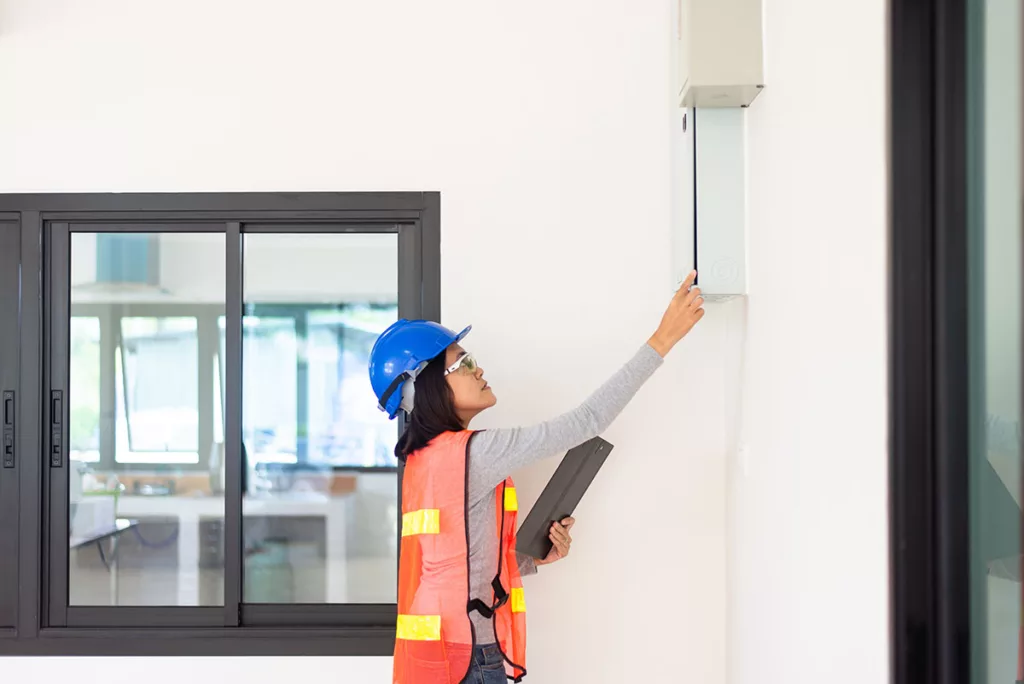
If you have a shed or workshop, outdoor electrical safety is critical. When having any electrical work done around the outside of your home, a professional electrician will always start by applying the same safety measures required for interior work, along with a few extra precautions. Below we have compiled a list of considerations to ensure the ultimate safety of any outdoor electrical systems.
1. Outdoor Electrical Wiring Codes and Regulations
One of our biggest outdoor electrical wiring safety tips is to familiarize yourself with local and national regulations. The National Electrical Code (NEC) is a regionally accepted standard of procedure that ensures electrical projects are completed safely and effectively. These codes are also incorporated with fire codes issued by the National Fire Protection Asociacion (NFPA). These rules and guidelines can help regulate safety hazards and make sure your electrical work runs smoothly.
2. Outdated Electrical Wiring
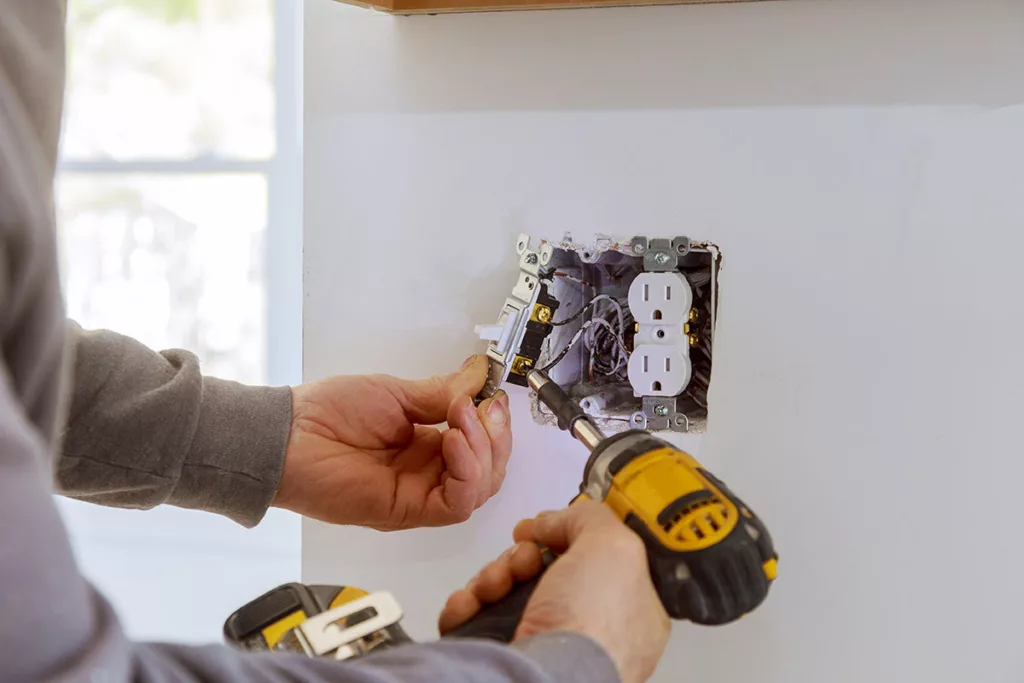
Outdated electrical wiring is one of the most vital safety concerns when it comes to outdoor structures, storage sheds, or workspaces. This is because old wiring is often made with outdated materials like aluminum, which was commonly used in residential spaces in the mid 1960s to 1970s. Aluminum wiring can pose many dangers, as it is susceptible to overheating, which can be a fire hazard. For your safety, you should always have older electrical work inspected by a professional electrician for the potential presence of aluminum wiring.
Signs that your wiring might be outdated include:
- Frayed wires
- Smoke
- Outlet discoloration
- Faulty lights that flicker or dim
- Warm outlets
- Buzzing or humming noises
- Sparks
- Bad odors
- Strange noises emitting from wires
- And more
If any of the signs listed above apply to you, a professional electrical inspection is highly recommended. Similarly, if there was previous electrical work done in an outdoor structure on your property, but you aren’t sure by who or how long ago it was done, it’s important to have a licensed electrician conduct an electrical safety inspection as well.
3. Electrical Panels
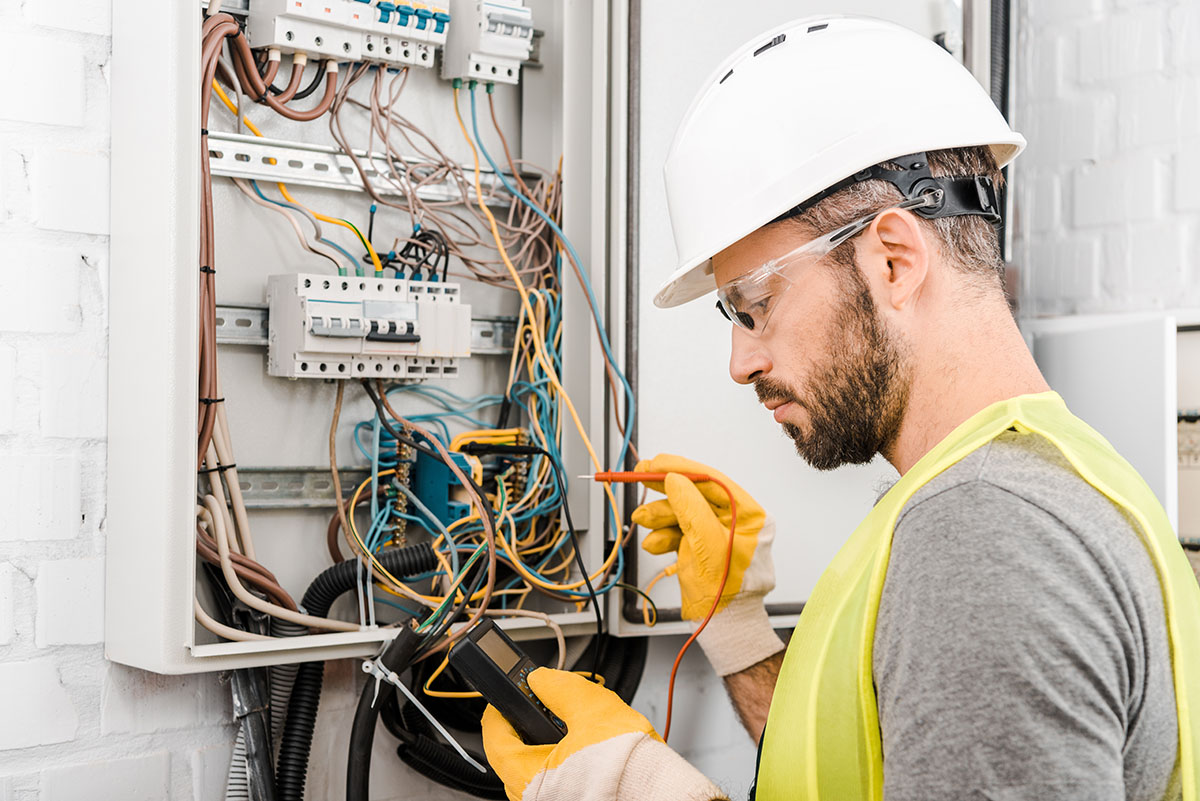
Another thing to consider when thinking about outdoor electrical safety is the state of your electrical panels. Can your existing electrical panel handle the extra load of an outdoor structure? Here are some signs your home’s electrical panel should be upgraded before wiring an outdoor shed:
- Flickering lights
- Scorch marks
- Sparks
- Warmth emitting from the panel
- Flickering lights
- Continually tripping breakers
- Humming or buzzing sounds
4. Outlets
It’s always important to have enough outlets in outdoor workshops or other exterior structures on your property, both for convenience as well as safety. If there aren’t enough outlets, the misuse of extension cords can cause things like overheating, which can be a fire hazard. You should also consider upgrading to GFCI outlets, which monitor electrical current levels to prevent electrical shock. Additionally, it’s important to ensure that all external outlets have weatherproof covers, to protect them from exposure and damage from the elements.
5. Smoke Detectors and Carbon Monoxide Detectors
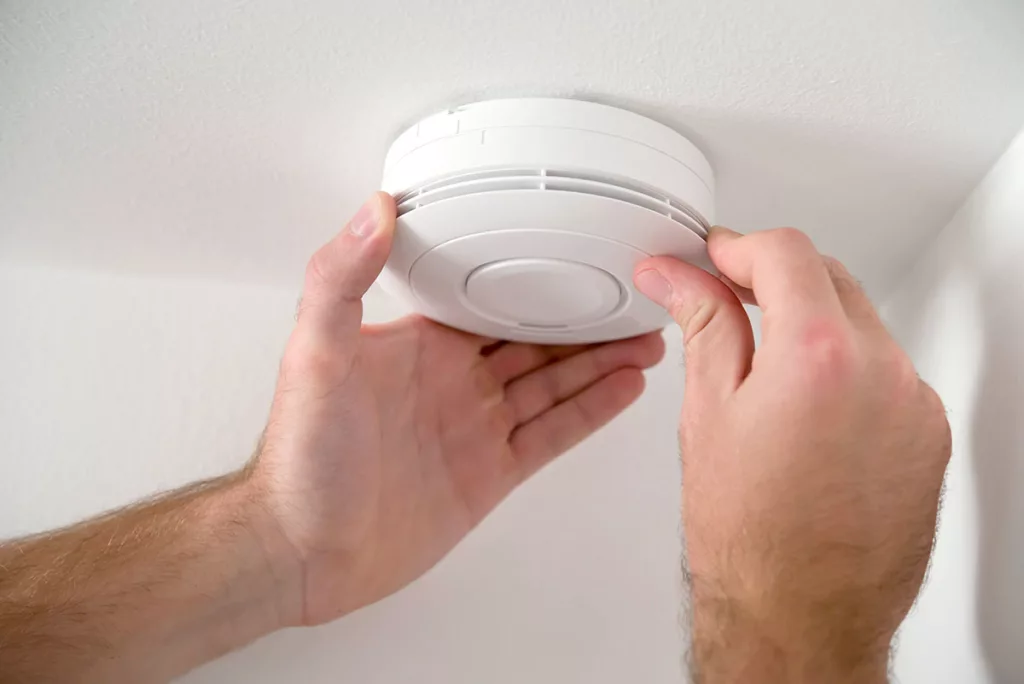
Even in outdoor buildings, smoke and carbon monoxide detectors are crucial for ensuring the overall safety of your home and property. Smoke detectors work to detect particles in the air that indicate the presence of a fire, while carbon monoxide (CO) detectors sense the presence of CO, an odorless gas that can be fatal when inhaled. Installing these safety features in any structure on your property can save lives. To ensure these emergency devices are always working properly, it is also incredibly important to routinely test all the smoke detectors and carbon monoxide detectors on your property.
Schedule an Electrical Inspection for Your Sheds and Workshops
Following these tips is a great way to implement good electrical safety habits. However, to keep you, your family, and your property as safe as possible, we highly recommend consulting with professional electricians. If you’re interested in adding electrical wiring to an outdoor structure on your property your, let us help you out. At Schafer Electric, we’ve been serving the Bay Area for years, providing comprehensive electrical services with our team of licensed experts.
Contact us to request inspection or installation services for your next residential project.

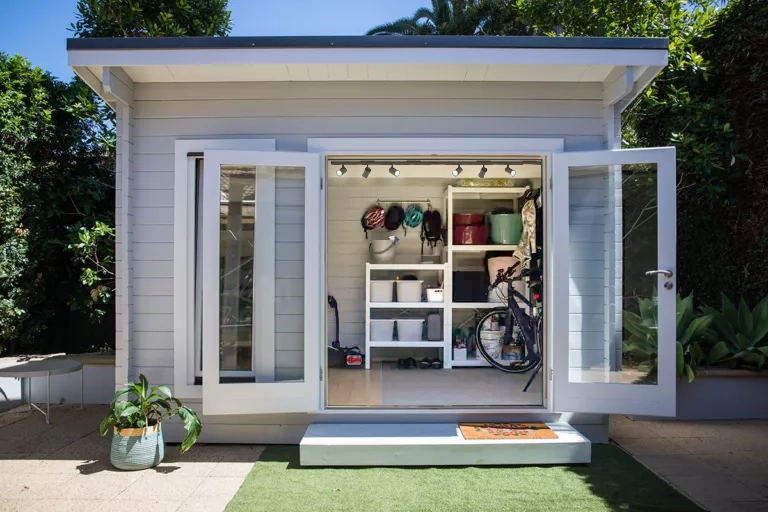
No comments yet. Add the first comment